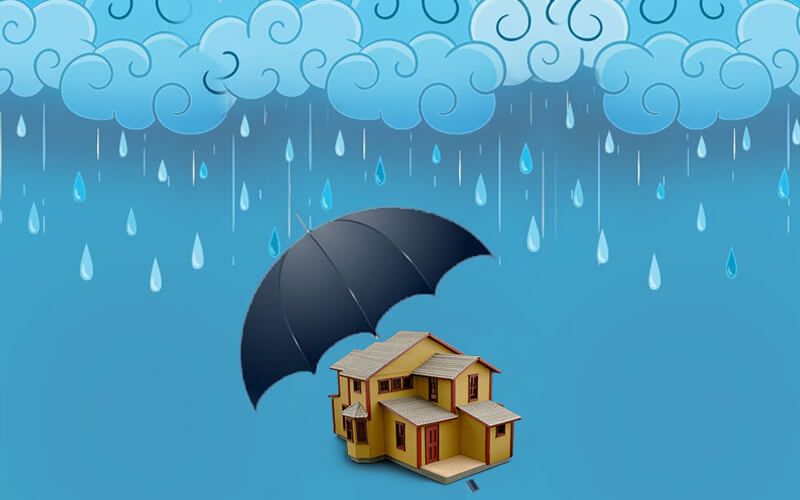In many areas around the world, there is one season that tends to bring about more rain than in the other seasons. In some places, this is just a minor uptick. But in others, the rainy season can dump huge amounts of rain in very short periods of time. And while you might like getting some of this moisture, large amounts of rain can be very dangerous for the infrastructure of your city and your home.
So to help ensure that you’re able to keep your family and your property safe during this time, here are three ways to protect your home during the rainy season.
Get The Right Insurance
One of the first things you should do in order to protect yourself and your home from rain and flood damage is to make sure that you have the right insurance in place before the first raindrop falls.
According to Megan Jones, a contributor to Survivopedia.com, most basic home insurance policies don’t automatically cover damage caused by flooding. Because of this, you’ll want to either add this insurance coverage or find a policy that does cover this type of damage. With the right home insurance policy in place, you’ll at least be able to replace or get reimbursed for any damage done to your home or property due to flooding during the rainy seasons you experience.
Keep Your Yard Clear
When flooding does begin to happen, the best thing you can do is to protect your home from being flooded or from the exterior damage that comes as a result of flooding.
To help you with this, the National Association of Home Builders recommends that you do your best to keep your yard clear of debris that could cause damage to your home in the event of flooding. Things like dead limbs, lawn furniture, gardening tools, and other items could easily crash into your home or cause soil erosion that could cause damage to your home’s foundation. So before the rainy season starts in your area, do your best to keep your yard clear of anything that could be hazardous.
Seal Any Cracks
Not only can flooding cause damage to your home, but any large amounts of rain could bring in most moisture than your home can handle. So to best keep your home safe, it’s wise to seal up any cracks that you see on both the inside and the outside of your home.
According to MentalFloss.com, you should also seal up cracks in your concrete or pavement. Especially if the weather turns cold, water stuck in these types of crack could freeze and cause a lot of damage as they expand the cracks into bigger and bigger gaps.
If you live in an area with a rainy season, consider using the tips mentioned above to protect your home from these hazards.

Leave a Reply